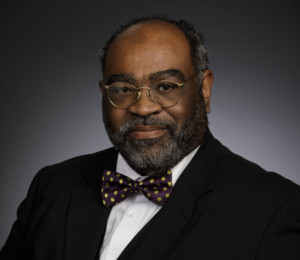Historical anniversaries are sometimes very tricky. If it was an event that somehow changed society for the better (i.e., the Supreme Court’s decision in Brown v. Board), then the celebrations are usually festive and upbeat. On the other hand, if the historical anniversary elicits feelings of sadness and remorse (i.e., the death of Tupac Shakur), one is left wondering what might have been. These are my conflicting feelings this month.
This year, we celebrate the 160th anniversary of the end of our Civil War. In April 1865, Robert E. Lee surrendered the Army of Northern Virginia to Ulysses S. Grant. Historians generally consider this the formal end of the Civil War. Both Lee and Grant were Westpoint graduates (albeit 14 years apart), and they were certainly aware of each other and must have respected the other’s military career. I assume this based on the deference Grant afforded Lee and his men at Appomattox. He allowed Lee’s subordinate officers to keep their guns, others were allowed to keep their horses, and some were even given food. Not a single member of the Army of Northern Virginia was taken prisoner, even though they voluntarily committed treason in defense of the Confederate States of America. As for Lee, not only was he not taken in chains and paraded through the streets of Washington DC, but he rode away as a free man from Appomattox and, within five months, became the president of Washington College in Virginia (now known as Washington and Lee University). Not a bad retirement plan for an old soldier who attempted to overthrow the government.
While Lee was allowed to live his life in relative comfort as an academic administrator after 1865, the same could not be said for a majority of the 4 million slaves experiencing freedom for the first time. In Texas, much has been written about Gordan Granger’s triumphant arrival in Galveston in June 1865. From the WPA Slaves’ Narratives, we understand that a majority of the state’s enslaved population understood very well that the fighting was about them. They also understood that southern whites were fighting to maintain the status quo consisting of the barbarous chattel slavery system, while those in the blue coats were there to tear it down.
Still, “freedom” is often a troubling concept. For those 4 million, it must have meant new opportunities: to live life on their terms, to marry whomever they fell in love with, and to enjoy the benefits of their labor. Sadly, to those southerners who embraced the rhetoric of succession, “freedom” in 1865 meant the destruction of their society. Within months of Lee’s surrender at Appomattox, the South showed little signs of remorse for the more than half-million deaths that occurred during four years of fighting. They were unapologetic (then and now?) for wanting to maintain their distinct culture and ways of life, even if it was built on the debasement of another race.
By the 20th century, historians sympathetic to the southern status quo embraced the idea that the South were “victims” of Abraham Lincoln’s unwarranted attacks upon their communities and homes. This revisionism of events legitimized what became known as the “Lost Cause” ideology. It portrayed the Confederacy as the last line of defense against Lincoln and his Republican band of political miscreants who refused to leave them alone. Historian William Dunning influenced generations by his interpretations of the Civil War and Reconstruction. His assertions that the start of the Civil War had nothing to do with slavery as the benevolent Master treated slaves as extensions of their families and blacks were uncivilized and unprepared to exercise the degrees of freedom thrust upon them by the Republicans. Perhaps the most offensive aspect of Dunning’s clearly racist narrative is the belief that violence was the only way to defend the virtue of the white female from the supposed debaucherous lusts of black men and maintain control of the black community.
So, as we remember the fall of the Confederacy 160 years ago, I sometimes wonder what this society might look like now if the southern status quo had fallen with it. Jim Crow rose from the ashes with a viciousness that still lingers today. Yes, I am very conflicted about this anniversary. Maybe instead of recognizing the demise (?) of the Confederacy, perhaps we should celebrate the month of April as the birth of black freedom in this country. Juneteenth could use a twin.
Ronald E. Goodwin, PhD, is Professor and Interim Division Head of the Division of Social Sciences at Prairie View A&M University.

